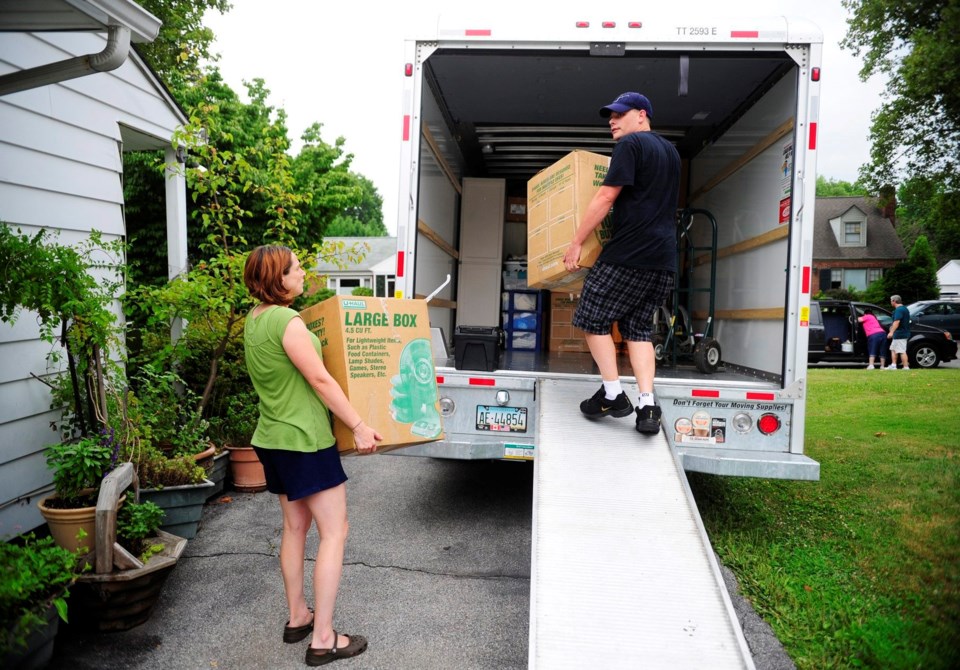You may not have started 2020 thinking about a move. But like it or not, many of us have had to reconsider our living situations during the pandemic.
Maybe you’re one of the lucky ones who can now work remotely, or maybe you’re out of a job like millions of others. You may be wondering whether living where you are is really worth it anymore.
Before you decide to relocate, you have many things to consider: the cost of living, proximity to your loved ones — and whether you’ll need a winter coat. Here’s how to go about making the decision to move.
FIGURE OUT YOUR PRIORITIES
For some, moving home is the obvious choice, whether “home” is the town you grew up in or where your family lives now. For others, it can be hard to zero in on a particular place, especially if your loved ones are scattered all over the country or world.
Take the pressure out of the decision — this move doesn’t have to be your last.
“Many people delay relocating, even if it’s the right move to make, because we can get stuck thinking that it’s a permanent move,” says Phuong Luong, a certified financial planner at Just Wealth in San Francisco.
She suggests narrowing your focus to the year ahead and reflecting on your priorities.
“What’s missing where I am now? Is there anything I’ll miss about where I’m living now? Make a list of your responses, because this can help narrow down your priorities that you’ll want your next location to meet,” says Luong.
DON’T RUSH INTO HOMEOWNERSHIP
Historically low mortgage rates may tempt you to move so you can buy your dream home. Moving to a cheaper location to buy a home can be a smart choice, but don’t rush into homeownership if your finances aren’t ready, cautions Elaina Johannessen, program director at Minnesota
A budget will help you figure out what you can realistically pay for housing and is better than listening to what a lender says you can pay, she says. “If you can afford your payment but you don’t have anything left over, it might not be the right thing to do,” she says.
Your budget accounts for necessities like housing payments, groceries and insurance; factors in discretionary expenses like cable or ordering takeout; and leaves room for savings and debt repayment. (The 50/30/20 budget, which divvies up spending into those three buckets, can help you get started.)
Don’t assume your salary will stay the same if your employer allows you to relocate, says Lazetta Rainey Braxton, a certified financial planner and co-CEO at 2050 Wealth Partners, a virtual financial planning firm. You may find your pay adjusted down if you move from an expensive area to a cheaper one. Check with your employer before making plans.
Even if your employer lets you relocate now, some companies aren’t sure what their plans are after the pandemic is over, says Rainey Braxton. Have a conversation with your employer to know whether you’d be expected to move back eventually and if you’d have to pay for moving costs in that situation, she says.
FACTOR IN OTHER COSTS
Moving isn’t cheap. Use your budget to figure out if you have the funds to get to a new place without piling up too much debt. And have a plan to build back your savings once you move. Ideally, you want to keep monthly housing costs in your new location below 28% of your gross income, leaving you enough room in your budget to build up savings. An emergency fund of even $500, if you can afford it, will help you deal with surprise expenses and keep you from accruing more debt.
Also, be prepared to adjust your budget to account for your new financial situation. You may be able to save on travel and child care costs if you move closer to family and friends. But you may also have new expenses, such as buying and insuring a car rather than using transit, says Luong.
Moving to a different state affects other costs, such as how much you pay in taxes and your access to health insurance options. You can use a cost of living calculator to get a sense of costs in the new location before you pack your bags.
Long-term job security is also a factor in planning a move or buying a home. You can’t predict the future, but do have a backup plan if you move to a city with fewer job prospects, Johannessen advises. Ask yourself what other jobs you could find in the new location if you were to lose your job after moving, she says.
_______________________________
This column was provided to The Associated Press by the personal finance
RELATED LINK:
NerdWallet: Cost of Living Calculator http://bit.ly/nerdwallet-cost-calculator
Amrita Jayakumar Of Nerdwallet, The Associated Press



